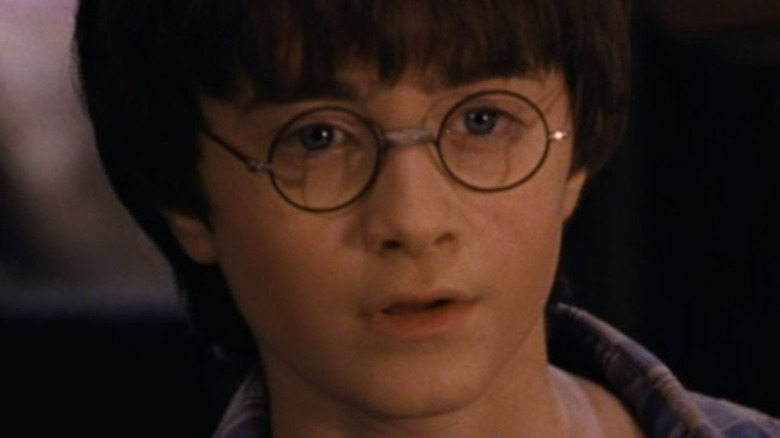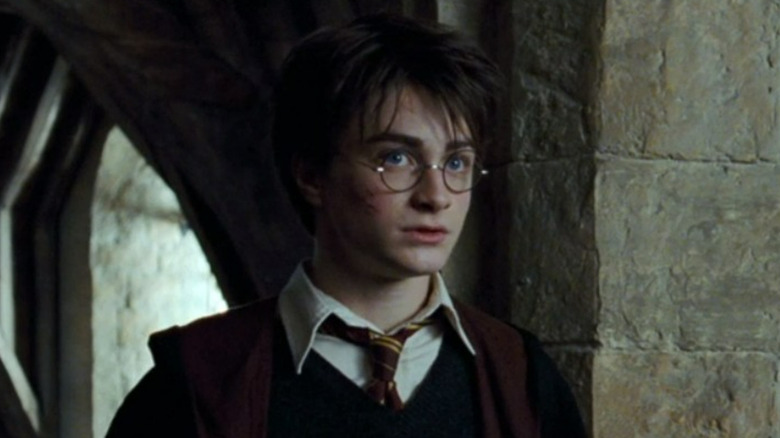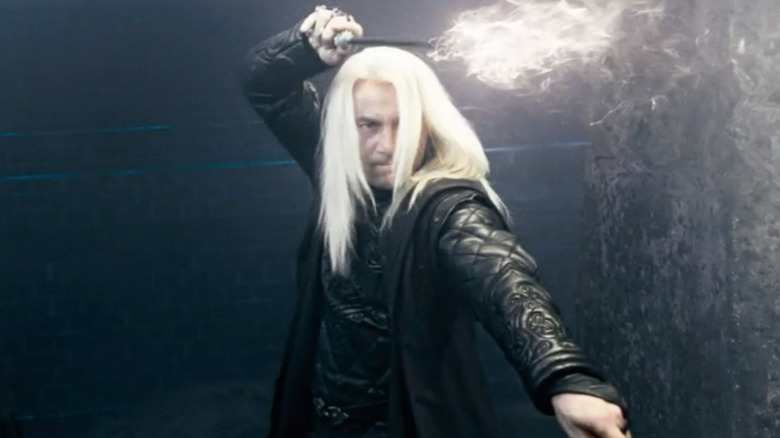The Big Question Harry Potter Fans Have About Left-Handed Wizards
The seven "Harry Potter" books and eight "Harry Potter" movies have had such a major impact on an entire generation that there is not only worldwide recognition for practically every name in the franchise but also multiple theme parks on two continents. In all the thousands of pages written both on paper and online to define the lore of "Harry Potter," however, more than a few questions have been left unanswered.
Where does one go for employment outside of Diagon Alley, the education system, or the Ministry of Magic? Does Mad-Eye Moody (Brendan Gleeson) know a boggart's true form? How is Hagrid (Robbie Coltrane) half-giant and half-human? While other questions people weren't asking about the universe have been answered either on J.K. Rowling's Twitter account or Pottermore (e.g., witches and wizards were apparently chill with relieving themselves in public), fans are still asking after the details for which they crave closure.
Do wand gestures really matter? Fans can't agree
In a subreddit dedicated to the Boy Who Lived, u/Dull_Title_3902 asked, "Spell[-]casting requires a specific hand movement. So if you do it left[-]handed, is it the same hand movement as if you were doing it with a right hand? Or do you do it like a mirror (i.e. the other side)? ... Also does that mean people can technically cast two wands simultaneously if they are ambidextrous?" The comment section beneath their question is, much like anything related to "Harry Potter," rife with lengthy, essay-like responses.
Opinions broadly fell into two categories, neither of which really believed that wand motions should be mirrored. The first ideology is best exemplified by u/Kakuloo, who claimed that magic follows intent more strongly than specific gestures. One of their primary examples is how Harry Potter (Daniel Radcliffe) immediately perfects the Patronus Charm after seeing his future self do it in the past (time travel is messy, just go with it).
The second school of thought is best represented by u/MildredTTV, who quite simply said, "I think you'd just do it the same. Mirrored changed [sic] the wand movement. You don't WRITE mirrored. Or DRAW mirrored. So why do the wand movements mirrored? If the wand movement is a clockwise circle, you make a clockwise circle."
Now, Rowling has barely ever covered this topic, even in her extended writings on Pottermore, but there is a likely answer.
Everyone's a little bit right, probably?
Let's be nerds for a minute, okay? The first movie, "Harry Potter and the Sorcerer's Stone," depicts Harry and his fellow students learning intentional wand movements for a certain spell. In later movies, there are more moments where they're practicing specific wand movements for specific spells, so there's a precedent to saying that the movement matters. There's also a precedent, albeit a vague one, for the wand arm mattering since Ollivander (John Hurt) asks Harry about his dominant arm when he is being chosen by his wand. Does he explain why? Absolutely not even a little bit, but it's worth noting.
Later, in "Harry Potter and the Half-Blood Prince" (just the book, sorry, this bit didn't make it into the movie), Professor Snape (Alan Rickman) teaches the students about the utility of nonverbal spells. These don't have different incantations than verbal spells, mind; it just means that the caster doesn't announce their spell before performing it. This sets the precedent for intent over form, which could plausibly be extended to wand movements.
That being said, it's shown that even nonverbal spell-casters use physical movement during their magic. Just watch the final battle in "Harry Potter and the Order of the Phoenix," and it will be clear how often gestures are still used when words aren't. It seems as if the physical connection is deeper than the verbal, but given, again, how Harry brute-forced his way through the Patronus Charm (which, to be fair, never specifies a wand movement), it's possible that the be-all and end-all behind spell-casting is force of will, which is further evidenced by how some witches and wizards are even able to do magic without a wand at all.


